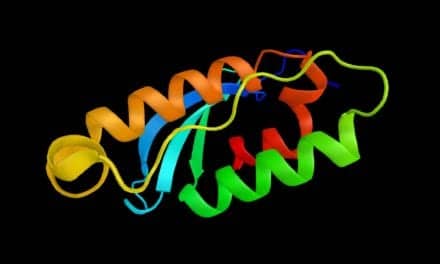Exact Sciences, Madison, Wis, announced that data from the Rx for Positive Node, Endocrine Responsive Breast Cancer (RxPONDER) trial successfully defined the benefit of chemotherapy in early-stage, node-positive breast cancer patients with Oncotype DX Breast Recurrence Score results of 0 to 25.
First results from the study, led by the independent SWOG Cancer Research Network, and sponsored by the National Cancer Institute, identified the majority of women with one to three positive nodes who received no benefit from chemotherapy.1
RxPONDER showed a different effect of chemotherapy based on Recurrence Score results for postmenopausal and premenopausal women. Postmenopausal women with Recurrence Score results 0 to 25 were not observed to show benefit from chemotherapy and may avoid the associated side effects of the treatment. Importantly, no chemotherapy benefit was observed regardless of the number of affected nodes, tumor grade, or size. Two-thirds of the women in the trial were postmenopausal.
The first results also demonstrated, after a median of five years of follow-up, that premenopausal women with Recurrence Score results 0 to 25 were observed to have a statistically significant chemotherapy benefit, with an average improvement in distant recurrence rates at 5 years of 3%.
Approximately 85% of women with node-positive disease have Recurrence Score results of 0 to 25. Postmenopausal and premenopausal women with Recurrence Score results 26 to 100 were not included in the study because investigators reviewed prior studies and determined that this patient group had chemotherapy benefit. The SWOG investigators intend to publish the detailed RxPONDER results in a peer-reviewed publication.
“Every day in clinics around the world, physicians wrestle with the question of how to best treat women with this common form of breast cancer,” says lead author Kevin Kalinsky, MD, a long-time SWOG investigator and director of the Glenn Family Breast Center at the Winship Cancer Institute of Emory University. “These results are practice changing and demonstrate that the great majority of postmenopausal women can be spared unnecessary chemotherapy and receive only hormone therapy. This should bring more clarity to physicians and some relief for patients.”
Approximately 25% of patients diagnosed with hormone receptor (HR)-positive, HER2-negative early breast cancer have tumor that has spread to their lymph nodes and two out of three are postmenopausal. The vast majority of these patients currently receive chemotherapy.
“With the RxPONDER and TAILORx trials, there is now definitive and undeniable clarity on who does and who does not benefit from chemotherapy among early-stage breast cancer patients, with either node-negative or node positive disease,” says Steven Shak, MD, chief medical officer at Exact Sciences. “These long-awaited results, which continue to build on the body of evidence supporting the role of the Oncotype DX test in shaping clinical practice, are estimated to impact tens of thousands of women worldwide.”
For more information, visit Exact Sciences.
References
1. Kalinsky K, Barlow WE, Meric-Bernstam F, et al. SWOG S1007: adjuvant trial randomized ER+ patients who had a Recurrence Score < 25 and 1-3 positive nodes to endocrine therapy (ET) versus ET + chemotherapy. Oral presentation at San Antonio Breast Cancer Symposium, December 10, 2020.





